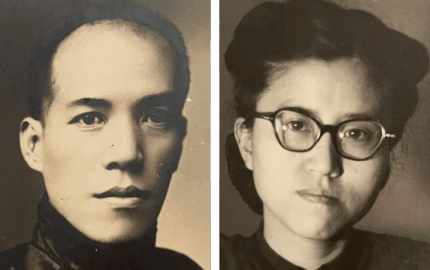To help news innovators advance quality journalism by incorporating new practices and technology into their work, the John S. and James L. Knight Foundation today announced $223,000 in support to the Nieman Foundation for Journalism at Harvard for a new program, the Knight Visiting Nieman Fellowships.
The program will bring journalists, technologists, academics and other news innovators to Harvard to develop projects to advance journalism. Each year, Nieman will select a minimum of five fellows. Lessons learned from the projects, developed during short, intense stays lasting no longer than 12 weeks, will be widely shared.
The visiting fellowships were first introduced as an experiment in 2012. With Knight support they are now an integral part of the Nieman program. Visiting fellows will work with traditional Nieman Fellows, who spend a full academic year at Harvard. They also have access to the extensive intellectual resources at Harvard and MIT, and throughout Cambridge, including local scholars, research centers and libraries.
“In the short time we have been working with visiting fellows, the impact on their work and ours has been significant. Over time, we expect this program to help journalism and journalists in increasingly important ways,” said Ann Marie Lipinski, curator of the Nieman Foundation.
“Journalism is so challenged in the digital age, it will take many great minds – including creative people from other fields – to help lead quality journalism to its best possible future,” said Eric Newton, senior adviser to the president at Knight Foundation. “Congratulations to Nieman for building innovation into the nation’s oldest and most distinguished journalism program.”
Visiting fellows come from the United States and abroad to work on research, programming, design, financial strategies and other projects. Eligible candidates include journalists, publishers, programmers, designers, developers, media analysts, academics and others with an idea to enhance quality, build new tools or business models or design programs to improve journalism.
Past participants include:
Support for the fellowships program is part of Knight Foundation’s efforts to encourage change in journalism education and advance excellence in journalism. In addition to previous support to the Nieman Journalism Lab, Knight’s many investments include: the Challenge Fund for Innovation in Journalism Education and the Knight-Vice Innovators Fund, and recent grants to Columbia University’s Tow Center for Digital Journalism, City University of New York, Florida International University, Stanford University and the Carnegie-Knight Initiative on the Future of Journalism Education.
Knight Foundation supports transformational ideas that promote quality journalism, advance media innovation, engage communities and foster the arts. The foundation believes that democracy thrives when people and communities are informed and engaged. For more, visit knightfoundation.org.
The Nieman Foundation for Journalism at Harvard educates leaders in journalism and elevates the standards of the profession through special programs that convene scholars and experts in all fields. More than 1,400 accomplished and promising journalists from 93 countries have been awarded Nieman Fellowships since 1938. The foundation’s other initiatives include Nieman Reports, a quarterly print and online magazine that covers thought leadership in journalism; the Nieman Journalism Lab, a website that reports on the future of news, innovation and best practices; and Nieman Storyboard, a website that showcases exceptional narrative journalism and explores the future of nonfiction storytelling. Learn more at nieman.harvard.edu.
The program will bring journalists, technologists, academics and other news innovators to Harvard to develop projects to advance journalism. Each year, Nieman will select a minimum of five fellows. Lessons learned from the projects, developed during short, intense stays lasting no longer than 12 weeks, will be widely shared.
The visiting fellowships were first introduced as an experiment in 2012. With Knight support they are now an integral part of the Nieman program. Visiting fellows will work with traditional Nieman Fellows, who spend a full academic year at Harvard. They also have access to the extensive intellectual resources at Harvard and MIT, and throughout Cambridge, including local scholars, research centers and libraries.
“In the short time we have been working with visiting fellows, the impact on their work and ours has been significant. Over time, we expect this program to help journalism and journalists in increasingly important ways,” said Ann Marie Lipinski, curator of the Nieman Foundation.
“Journalism is so challenged in the digital age, it will take many great minds – including creative people from other fields – to help lead quality journalism to its best possible future,” said Eric Newton, senior adviser to the president at Knight Foundation. “Congratulations to Nieman for building innovation into the nation’s oldest and most distinguished journalism program.”
Visiting fellows come from the United States and abroad to work on research, programming, design, financial strategies and other projects. Eligible candidates include journalists, publishers, programmers, designers, developers, media analysts, academics and others with an idea to enhance quality, build new tools or business models or design programs to improve journalism.
Past participants include:
- Paul Salopek, Nieman’s inaugural visiting fellow, who used his time at Harvard to plan his epic seven-year Out of Eden reporting walk around the globe to trace the path of human migration and use storytelling and technology to test a new form of “slow journalism.”
- Hong Qu, chief technology officer for Fusion, who developed his Keepr application to help journalists and other users better follow stories on Twitter and sort fact from rumor. Keepr was put to the test in April 2013 during the Boston Marathon bombings when Hong used his algorithm to identify reliable information as events unfolded.
- David Smydra from Google News, who formed a small working group with Nieman Fellows for feedback as he developed a structured data format for future news events.
- Allissa Richardson, an assistant professor of journalism at Bowie State University in Maryland, who developed a mobile journalism massive open online course (MOOC) on how to report news using only tablets, MP3 players or smartphones.
- Jack Riley, the London-based head of audience development for The Huffington Post UK, who researched the future impact of smartwatches and wearable devices on journalism.
Support for the fellowships program is part of Knight Foundation’s efforts to encourage change in journalism education and advance excellence in journalism. In addition to previous support to the Nieman Journalism Lab, Knight’s many investments include: the Challenge Fund for Innovation in Journalism Education and the Knight-Vice Innovators Fund, and recent grants to Columbia University’s Tow Center for Digital Journalism, City University of New York, Florida International University, Stanford University and the Carnegie-Knight Initiative on the Future of Journalism Education.
About the John S. and James L. Knight Foundation
Knight Foundation supports transformational ideas that promote quality journalism, advance media innovation, engage communities and foster the arts. The foundation believes that democracy thrives when people and communities are informed and engaged. For more, visit knightfoundation.org.
About the Nieman Foundation for Journalism at Harvard
The Nieman Foundation for Journalism at Harvard educates leaders in journalism and elevates the standards of the profession through special programs that convene scholars and experts in all fields. More than 1,400 accomplished and promising journalists from 93 countries have been awarded Nieman Fellowships since 1938. The foundation’s other initiatives include Nieman Reports, a quarterly print and online magazine that covers thought leadership in journalism; the Nieman Journalism Lab, a website that reports on the future of news, innovation and best practices; and Nieman Storyboard, a website that showcases exceptional narrative journalism and explores the future of nonfiction storytelling. Learn more at nieman.harvard.edu.


